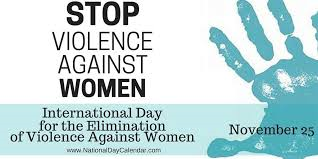
On the Occasion of November 25
International Day for the Elimination of Violence against Women
Violence against Women in the Islamic Republic of Iran
Islamic Republic of Iran (IRI) is among only four UN member states who have not signed the resolution for the International Day for the Elimination of Violence against Women.
The Constitution and other judicial, civil and criminal laws of Iran are based on Shia Islamic, which are discriminatory in nature. For example, Article 115 of the Constitution considers “political elite” synonymous with males who are eligible for high-level government positions, including the presidency.
The judicial and justice system in the IRI values female testimony as half as male testimony; the share of inheritance of women and girls in the family is only equal to half the inheritance of male children.
As is typical of deeply traditional and patriarchal societies, Iranian women are harassed in both their public and private lives. Article 12 of the Constitution has legalized this religious sex-based discrimination. To enforce women’s observation of the Islamic veil and other features of the state’s compulsory dress code, the regime uses all kinds of military and coercive means. The most violent of these organs is called the “Islamic Guidance Patrol.”
Alongside this police force, other government-affiliated women's groups are hard at work to espouse and legitimize this state-sanctioned violence.
There are no accurate statistics on domestic violence against women in Iran. Many women are reluctant to complain or even speak out in such cases. Traditions and cultures governing male-female relationships make many types of physical and verbal violence natural. Disobedience to their husbands, fathers or brothers orders is considered unethical and socially warrants such abuse.
The government and their proxy authorities also abandon cultural and educational work to adopt the measures necessary to encapsulate and espouse this primitive patriarchal tradition and culture, and in most cases, intentionally deepen it.
In December of 2017, the government introduced a bill to Majlis called Opposition to Violence against Women, an Islamic version of the UN’s measure to eliminate of violence against women. If this 51-point law passes, it will at least serve to condemn violence against women in Iran’s legal sphere, while not impacting the existing discriminatory laws within the Constitution. This law was introduced almost 3 years ago with no progress in site.
The Union for Secular Republic and Human Rights in Iran believes that without a national effort and the adoption of legal measures to rid society of these traditions and habits, discrimination and violence will continue to endanger Iranian women.
The government of the Islamic Republic not only does not take any tangible action in this regard, but also imposes gender segregation policies on schooling and public spheres, prohibits any kind of women's sport in public places where men are present, and encourages polygamy. These measures serve to legalize violence against women, and deepen this primitive and backward discrimination against them.
Our organization views the adoption and implementation of the UN’s measure to eliminate all forms of discrimination against women as a first step towards gender equality.
International Relations Committee
November 14, 2019



